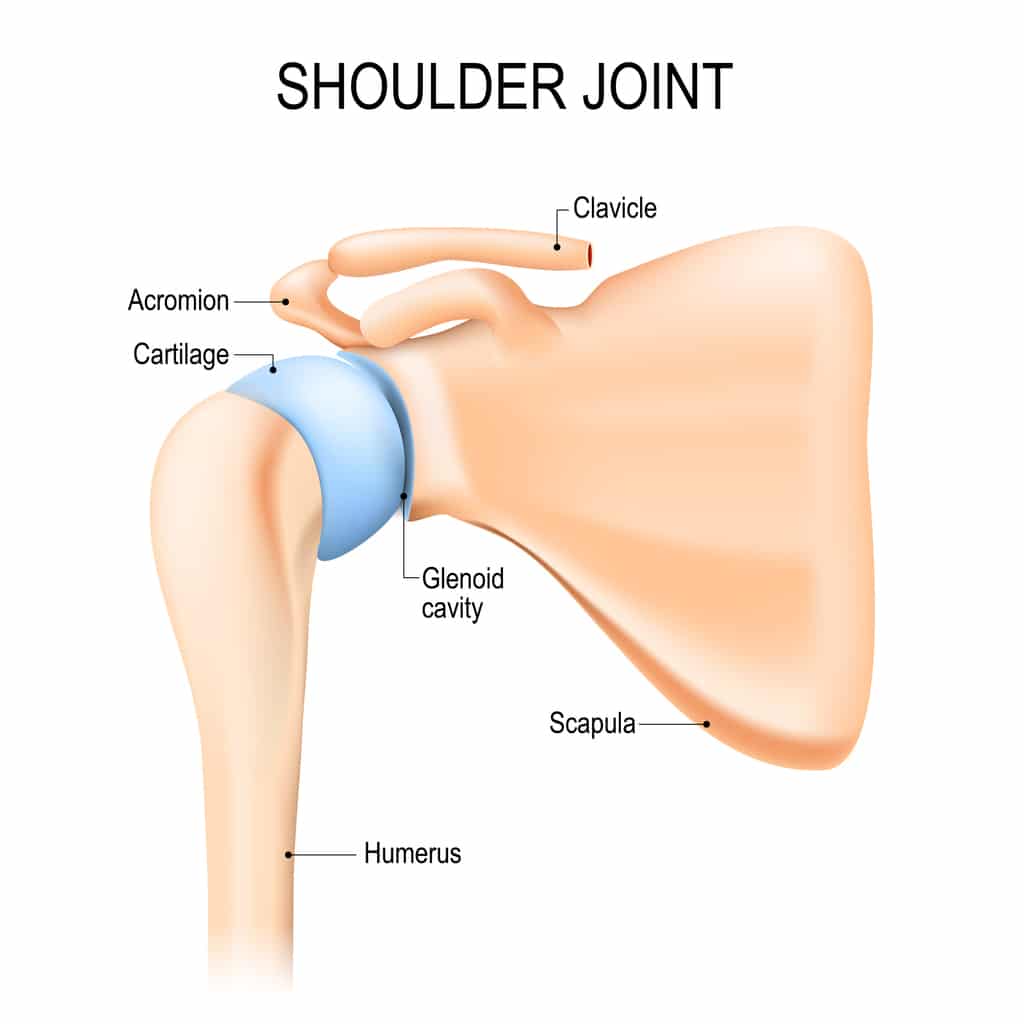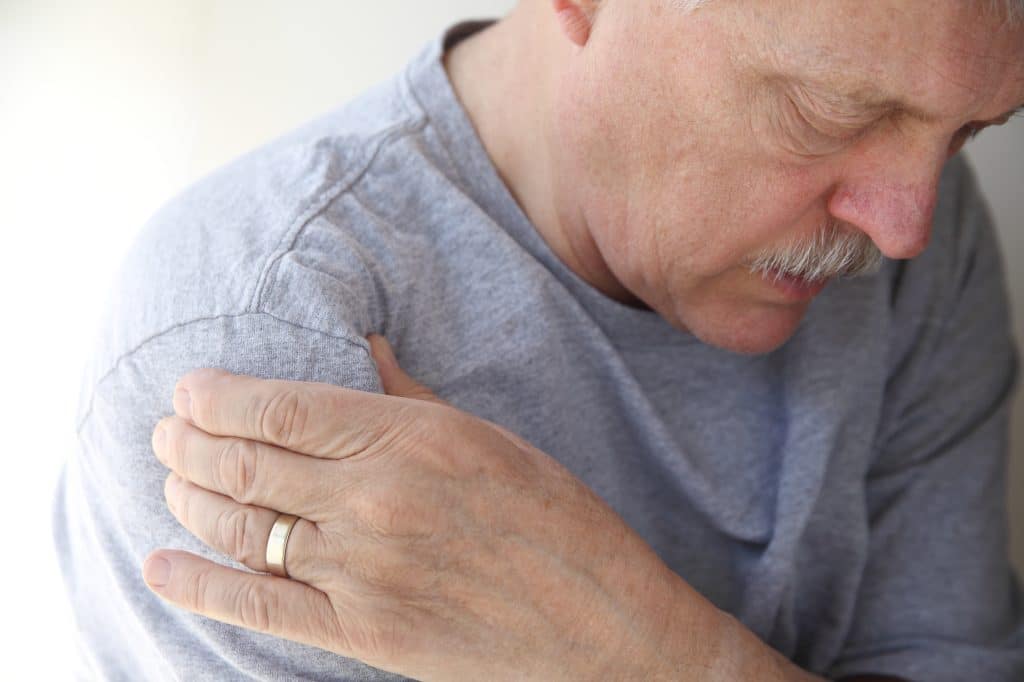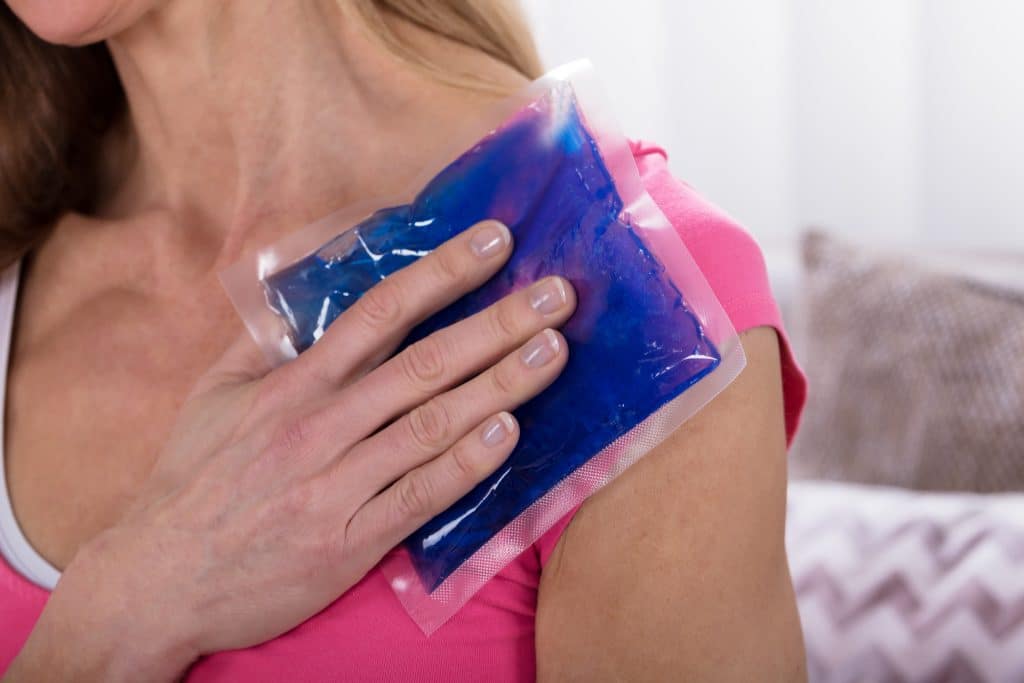Loose Bodies in the Shoulder
Loose bodies of the shoulder are small pieces of bone or cartilage that have broken off the shoulder and are floating in the shoulder joint. Loose bodies are relatively rare, but if you’ve had repeated shoulder injuries, your risk of developing loose bodies is higher. One of the most common symptoms of loose bodies in the shoulder is a catching and locking sensation in the joint. Loose bodies can also cause a significant decrease in your ability to move your shoulder. In cases with no or only mild symptoms, nonsurgical treatments may be enough to maintain your current lifestyle and routines.
What causes loose bodies in the shoulder?

Loose bodies can result from an acute, traumatic injury or repeated shoulder injuries that cause gradual changes to the cartilage over time. They can also be caused by repetitive use that damages cartilage, as in osteoarthritis. Conditions like synovial chondromatosis or osteochondritis dissecans can also cause loose body formation.
When the cartilaginous tissue between the humerus (upper arm bone) and the scapula (shoulder blade) is damaged, it can begin to deteriorate. Sometimes a small piece of cartilage or bone breaks free and floats in this space (the glenohumeral joint). This is called a loose body of the shoulder.
Some people have loose bodies that cause no symptoms. Thus they are unaware of the condition. Other times, these loose pieces of cartilage or bone get stuck in the joint and cause various problems. Symptoms of loose bodies can range from incredibly mild to severe.
Symptoms of Loose Bodies

Common symptoms of loose bodies include:
- A locking or catching sensation
- Pain
- Decreased range of motion
- Stiffness
- A feeling that your shoulder is out of place
- Shoulder instability
Diagnosing Loose Bodies
To diagnose and locate loose bodies of the shoulder, your orthopedic shoulder specialist will:
- Take a detailed medical history
- Ask about previous injuries
- Perform a physical exam
- Evaluate your shoulder’s range of motion and ability to perform specific movements
- Use diagnostic imaging like an X-ray, MRI, or CT scan
Treating Loose Bodies
Even if you can see loose bodies on the diagnostic images your orthopedic specialist takes, they may not be causing you significant pain. In milder cases, nonsurgical options for treating loose bodies in the shoulder may be appropriate, including:

- RICE: Use rest, ice, compression, and elevation of the shoulder to decrease inflammation.
- NSAIDs: Take non-steroidal anti-inflammatory medications as directed to manage pain.
- Immobilization: Wear a sling or brace to limit shoulder movement.
- Injections: Consider corticosteroid injections to decrease inflammation in the area.
- Physical Therapy: Use physical therapy exercises to improve range of motion and mobility.
Should loose bodies in the shoulder be removed?
Surgery is the only way to remove loose bodies. Your orthopedic shoulder specialist will likely recommend surgery if conservative treatments don’t help. You may also need surgery like osteoarthritis surgery if you suffer from decreased ability to use your arm or shoulder.
Minimally invasive arthroscopic surgery is often the preferred surgical option for removing loose bodies. In arthroscopic surgery, your orthopedic shoulder specialist makes several small incisions and uses tiny instruments to locate and remove the loose bodies. Your orthopedic shoulder surgeon will give you local anesthesia for the pain. You will wear a sling for a period of the initial healing phase. Many people feel much better within just 6 weeks of arthroscopic surgery for loose bodies.
If you have large loose bodies in your shoulder, talk with your orthopedic shoulder surgeon about whether open surgery is right for you. Open surgery may be necessary but in some cases, your surgeon will opt to break up the large loose bodies and remove them arthroscopically.
If you have shoulder pain, a shoulder injury, or a question for one of our orthopedic shoulder surgeons, please comment below or contact us.
Leave a Reply